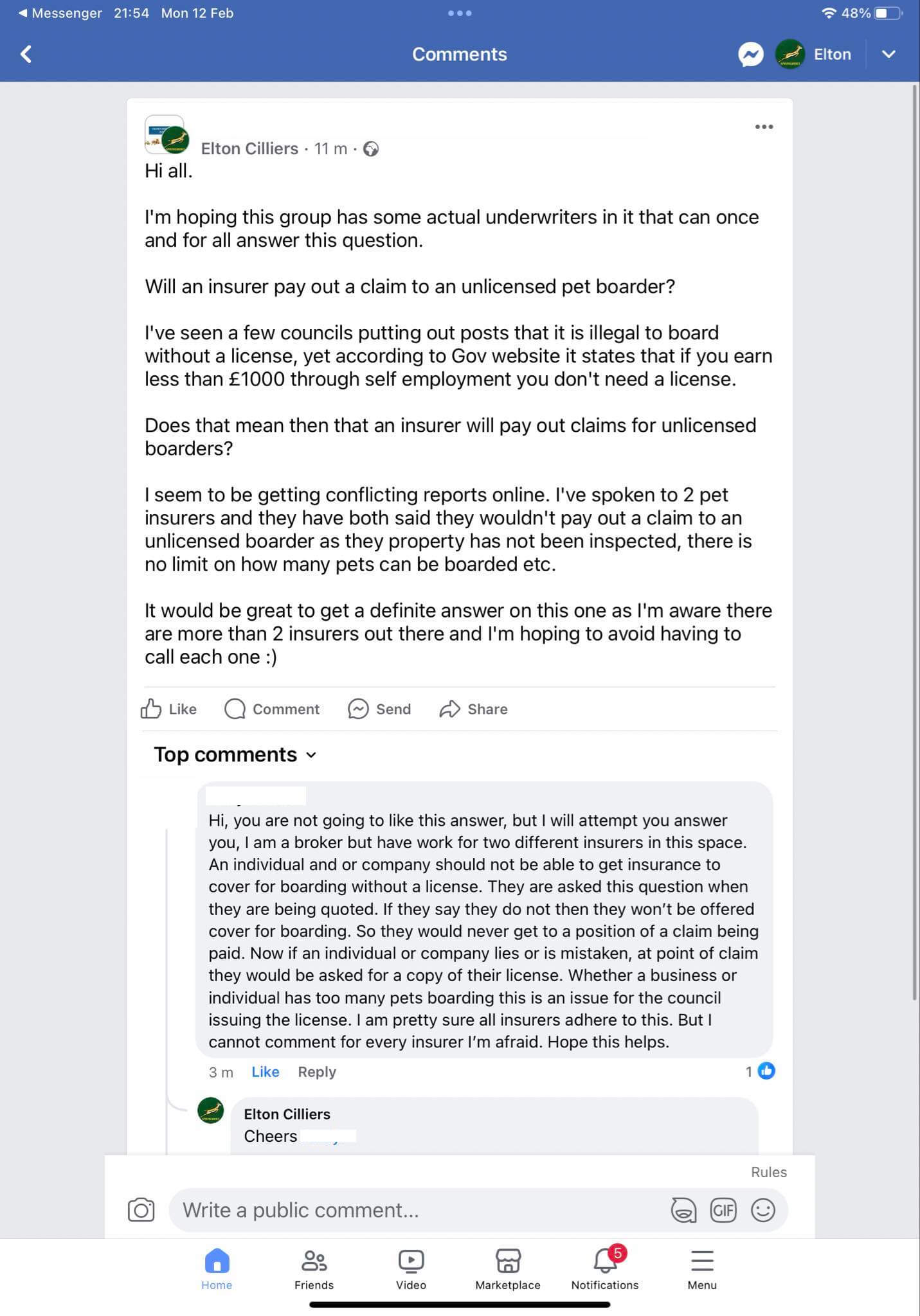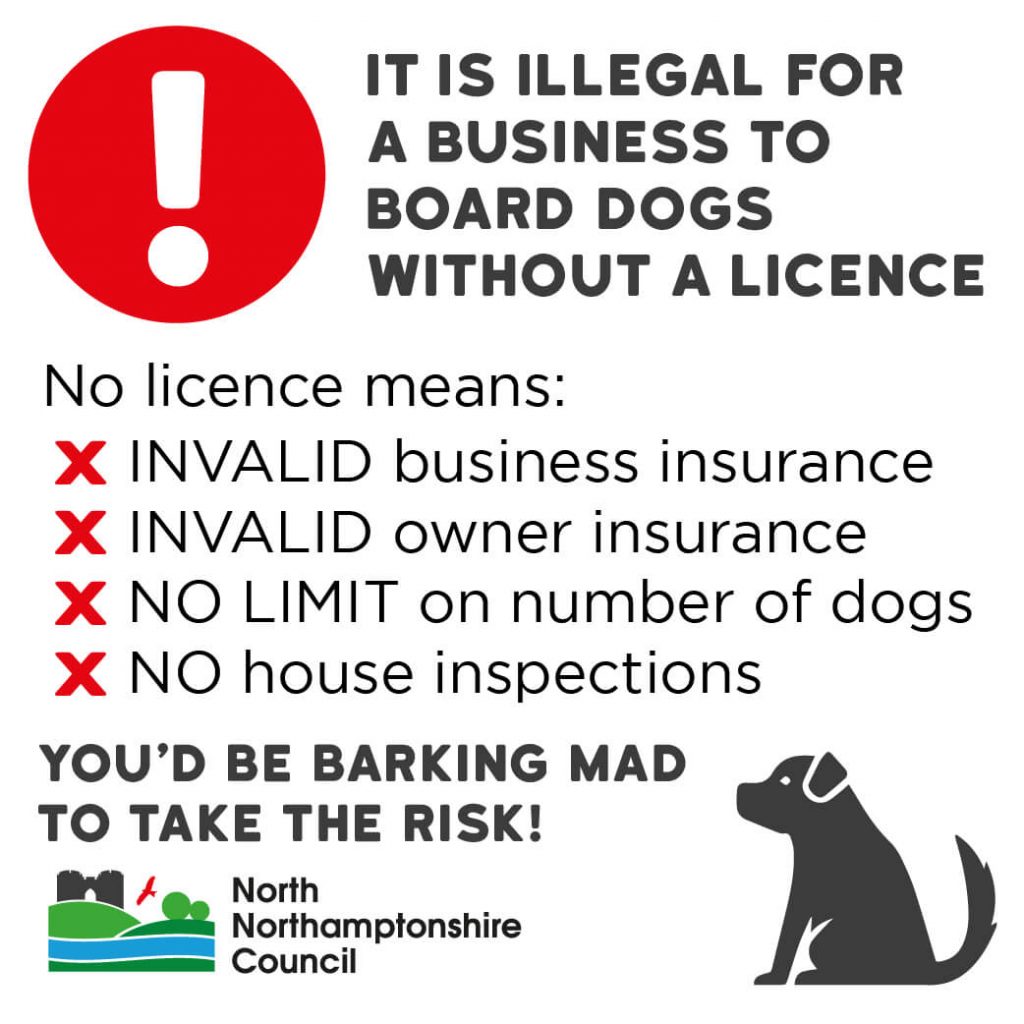As a dedicated member of the pet care community, I often encounter individuals offering or seeking home boarding services. However, there’s a surprising lack of awareness about the legal requirement for home boarders to be licensed by their local council.
This post delves into the laws surrounding home boarding for dogs and cats, emphasising the importance of adhering to legal standards for the safety and well-being of pets.

Why is Licensing Crucial for Home Boarders?
Securing a home boarding license is vital. It’s not just a formality; it’s about ensuring that your home environment and care standards meet the legal requirements for pet welfare.
This process is akin to childminders undergoing home inspections and completing requisite courses, such as first aid. A license signifies that a home boarder has passed council inspections and adheres to strict guidelines, safeguarding the welfare of pets in their care. Non-compliance can lead to severe penalties, including fines, license revocation, and a potential ban on pet care or ownership for up to a decade.
Understanding the Costs of a Home Boarding License
Obtaining a home boarding license involves two fees: an application fee for inspection and paperwork processing, and an annual licensing fee. These fees vary by local council, generally falling between £150-£200 for each fee. It’s crucial to consult your local council’s website for accurate fee information in your area.
The Inspection Process for Home Boarding

Council inspections for home boarding licenses are thorough. Inspectors assess your home’s suitability for pet care, including room availability, property security, and potential escape routes. They also evaluate your qualifications and may require completion of basic courses, like pet first aid, before granting a license. The council will then decide on the number of pets you can responsibly care for at one time.
Determining the Maximum Number of Pets
The number of pets a home boarder can accommodate is decided post-inspection, based on your home’s size and whether you have pets of your own. This ensures each pet receives adequate care and attention.
The HMRC £1000 Earning Threshold and Home Boarding
A common misconception is that registration with the council for home boarding is only necessary after earning £1000. However, this threshold applies to all income sources, not just pet boarding. Furthermore, most insurance policies require a valid license for coverage. Thus, unlicensed home boarding poses significant insurance risks for both the boarder and the pet owner, making it a gamble not worth taking.
I have had two pet insurers confirm that they would not provide insurance to boarder who could not provide a license number when getting an insurance quote as this is a question that is asked during the process.
If an applicant lies and gets insured, when a claim is made, they (the boarder/claimant) will need to provide their license number as part for the claim form.
This has also been confirmed by a Broker within the pet care insurance industry. He has experience of two different insurers in the space and confirms that those would ask for the license number during the quote process.
So if you ever see someone claiming they don’t need to register for a license because they do it part time, or don’t earn £1000 a year from it, then you know they are NOT INSURED.
See screenshot below of a post I made in a Facebook group related to pet insurance.

Licensing Requirements for Rover Home Boarders
Home boarders using platforms like Rover are also subject to local laws and must be registered and inspected by their council. Rover’s terms and conditions explicitly state this requirement, reinforcing the importance of legal compliance.
As we hopefully have now established, if you board pets (cats and dogs) then you need a license. You are not covered as a boarder and do not avoid getting a license because you work through a site like Rover.
Seeking Landlord Permission for Home Boarding
Many overlook the need for written landlord permission when offering home boarding services, especially tenants. Most UK rental contracts prohibit commercial use without explicit consent. Therefore, obtaining written permission is a crucial step before starting your home boarding business.

In Summary: The Importance of Using Registered Home Boarders
For pet owners, choosing a registered, inspected, and insured home boarder is vital for your pet’s safety. Registered boarders are listed on local council websites, providing a reliable resource for finding suitable care. For home boarders, registration mitigates financial and legal risks associated with pet care accidents, ensuring protection for both the boarder and the pets.
As North Northamptonshire Council say, you would be Barking Mad! Click image for link to the post (please let me know if link stops working and I’ll delete the link/reference)

If you care about your pet, as I’m convinced you do, then you simply would not consider an unlicensed boarder. You may be willing to take the risk but its your pet that may pay the price.
Questions and tips to ask a potential boarder
Here are a few questions I suggest you ask any boarder you are considering leaving your pet with.
- Are you licensed? (If no, then ideally you will not continue further)
- What is your address?
- Please provide me with your license number and photographic evidence of your license (a licensed boarder has to, as part of their license terms and conditions, have this prominently displayed within the entrance to their property)
- Check license number matches that on the license certificate image
- Check the address provided earlier matches that on the address.
- Check which council they are registered with (it will appear on their certificate/license)
- Contact said council to verify
- If they are indeed registered then by all means continue with your engagement with them and I’m sure your pet will get great care. Boarders who go through the cost and paperwork involved in being a licensed boarder in my opinion show integrity and a desire to do the right thing for the pets (in the vast majority of cases)
If you post for a boarder in a group online, then always state that you are looking for a licensed boarder ONLY and that you will need to see a copy of their license certificate if they comment or get in touch with you.
It may sound like a schlepp to go through all that to some, but please take the time for the sake of your pets.
Conclusion: The Mark of a Committed Home Boarder
A licensed home boarder reflects a commitment to providing quality pet care. In contrast, unregistered boarders often prioritise income over genuine affection for animals. As a pet owner, choosing a licensed and dedicated professional is the safest option for your beloved pet.
Check out this post for more information of the risks of using unlicensed boarders
Join our community
Click on the image below to join our pet owner and pet caregiver group on Facebook
